Imagine pulling a warm loaf of sprouted grain bread from the oven, its rich aroma filling your kitchen and each slice packed with nutrition and soft, nutty flavor.
Imagine the warm, nutty aroma filling your kitchen as you pull a golden loaf of sprouted grain bread from the oven. This isn’t just any homemade bread. It’s rich in flavor, packed with nutrients, and soft enough for your favorite sandwich. Whether you’re baking for health or taste, this is your go-to guide.
You’ll learn exactly what makes sprouted grain bread different, how to bake it perfectly every time, and get answers to the most common questions people ask. After testing and refining this recipe for maximum flavor and texture, I’m confident this will become your favorite loaf to bake and share.
Table of Contents
Why You’ll Love This Recipe
- Quick to prepare with no kneading required
- Uses simple pantry ingredients like sprouted wheat flour and olive oil
- Perfect for toast, sandwiches, or enjoying plain with a bit of butter
- Soft crumb with a mild, nutty flavor that everyone enjoys
- Healthy choice packed with fiber, protein, and natural nutrients
This sprouted grain bread stands out because of its ease and consistent results. Unlike dense or bitter whole wheat loaves, it strikes the right balance between softness and nutrition. It’s a feel-good bread that comforts, nourishes, and impresses at the same time.
⭐️⭐️⭐️⭐️⭐️
From Harvard‑affiliated expert Kristina Secinaro, RDN at Beth Israel Deaconess Medical Center:
“Sprouted grains have more available nutrients than mature grains… sprouting breaks down phytate, a form of phytic acid that normally decreases absorption of vitamins and minerals.”
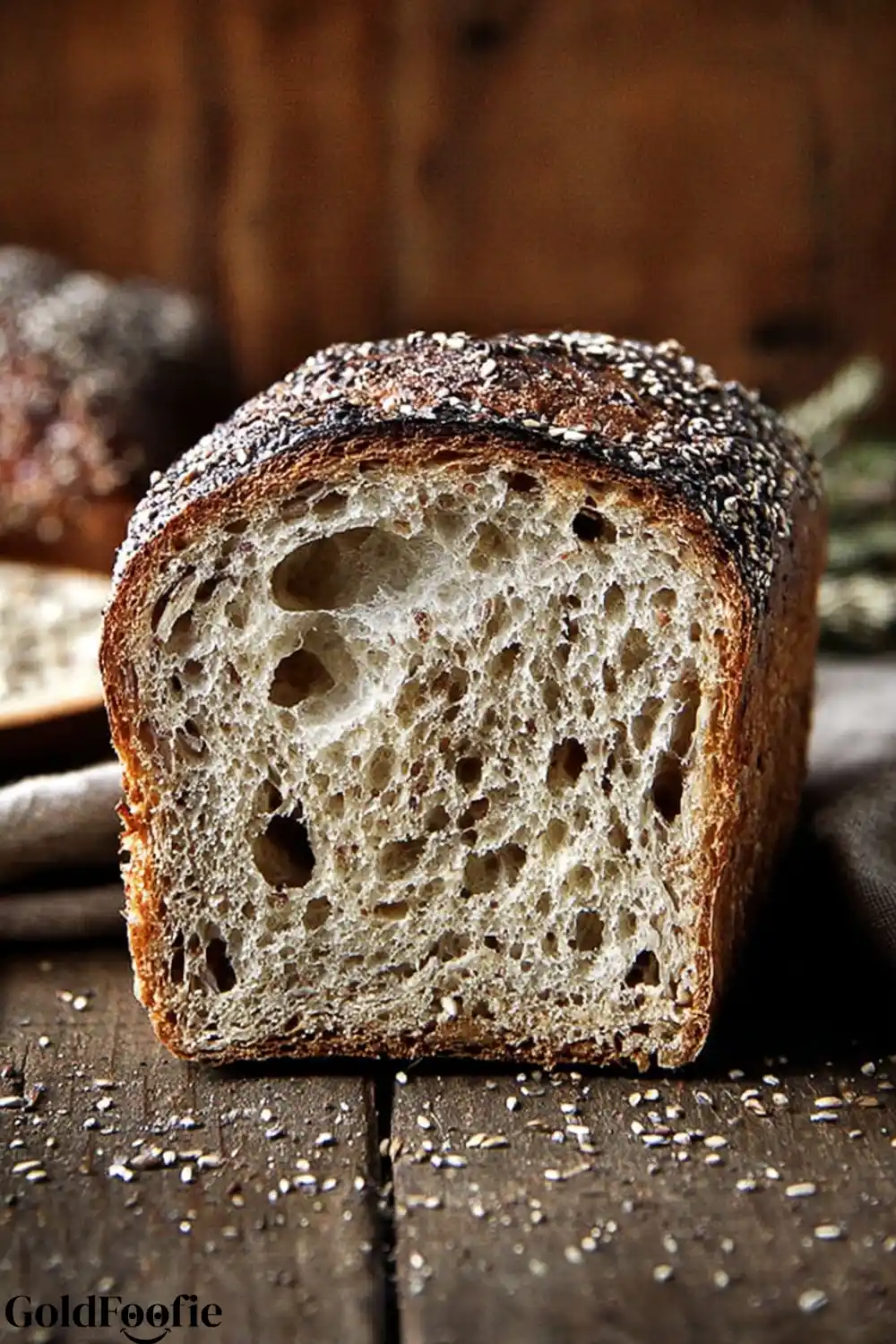
The Power of Sprouting: What is Sprouted Grain Bread and Why Is It Better?
What Does “Sprouted” Mean?
Sprouted grain bread is made from whole grains that have begun to germinate. During this natural process, the grains absorb water and start to grow. Think of it like this: the grain shifts from being a dense starch to something closer to a vegetable. This simple transformation boosts its nutritional value and makes it easier for our bodies to absorb what we need.
Top 5 Health Benefits of Sprouted Bread
- Easier to Digest: Sprouting breaks down anti-nutrients like phytic acid, which can block mineral absorption.
- Increased Nutrient Absorption: The sprouting process makes vitamins like B and C more available to the body.
- Higher in Fiber and Protein: Compared to white or whole wheat bread, sprouted grain bread offers more of both.
- Lower Glycemic Index: This helps stabilize blood sugar levels, making it a smarter choice for people managing diabetes.
- Better Flavor: The taste is naturally sweet, slightly nutty, and less bitter than traditional whole wheat.
You’ll Also Love
➤ Low-Carb Bread Machine Recipe Solves Every Problem
➤ Psyllium Husk Bread No Fail Guide for Every Diet
➤ Low-Carb Bread Soft Gluten-Free Loaf Recipe
Sprouted vs. Whole Wheat vs. Sourdough: Which is Healthiest?
When it comes to choosing the healthiest bread, sprouted grain bread, whole wheat, and sourdough are all strong contenders. Here’s a simple comparison to help you decide which one fits your goals best.
| Feature | Sprouted Grain Bread | Whole Wheat Bread | Sourdough Bread |
| Digestibility | Easy to digest due to sprouting | Moderate, may feel heavy | Easier thanks to natural fermentation |
| Nutrient Level | High in vitamins and minerals | Good, but less accessible | Moderate, with some increase from fermentation |
| Gluten Content | Contains gluten, easier to process | Full gluten content | Contains gluten, may be easier for some to tolerate |
| Flavor | Naturally sweet and nutty | Mild and sometimes bitter | Tangy and rich |
All three breads offer benefits, but sprouted grain bread provides a unique mix of improved digestion and higher nutritional value. It’s a smart pick if you want both taste and health in every slice.
The Perfect Sprouted Sandwich Loaf: The Only Recipe You Need
Ingredients Needed
For the dough base
- 3 cups all-purpose flour
- 3 cups sprouted wheat flour or whole wheat flour
- 1 tablespoon kosher salt
- 1 tablespoon sugar
- 1 tablespoon instant yeast
For the liquid mix
- 3 cups lukewarm water
- One third cup neutral oil or olive oil
For the pan and topping - Softened butter for greasing
- A mix of seeds such as flax, millet, pumpkin, sunflower, sesame, poppy, or chia (optional)
Essential Equipment
- A large mixing bowl
- Two standard loaf pans (8.5 x 4.5 inches)
- A digital kitchen scale for accuracy
- A rubber spatula
- Two forks
- A pastry brush
- A rimmed tray or plate for seeds
- A bench scraper
- A clean surface for shaping the dough
- A cooling rack
This sprouted grain bread recipe is simple, requires no kneading, and delivers consistent results with basic kitchen tools.
How to Make Diabetic Bread Recipes
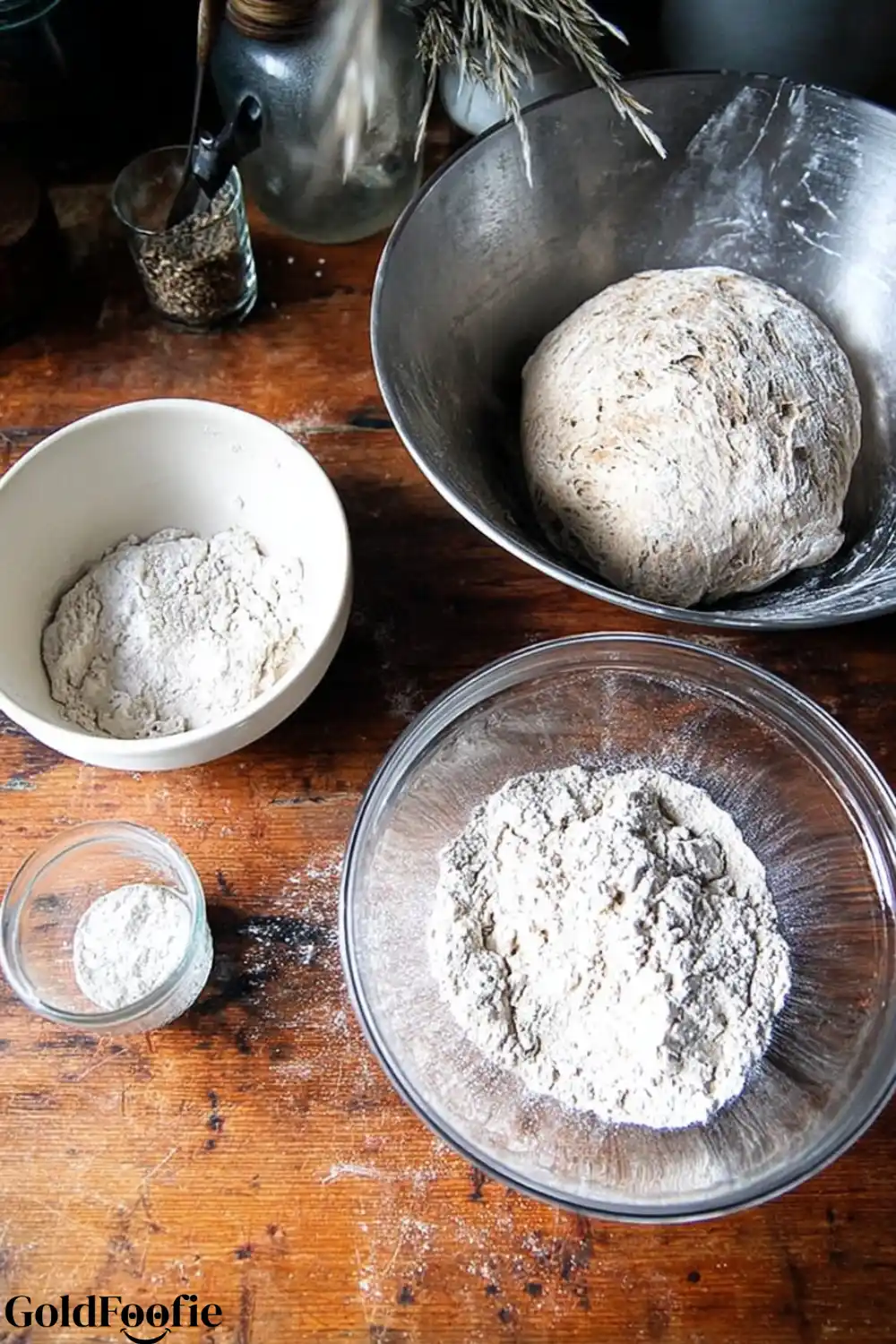
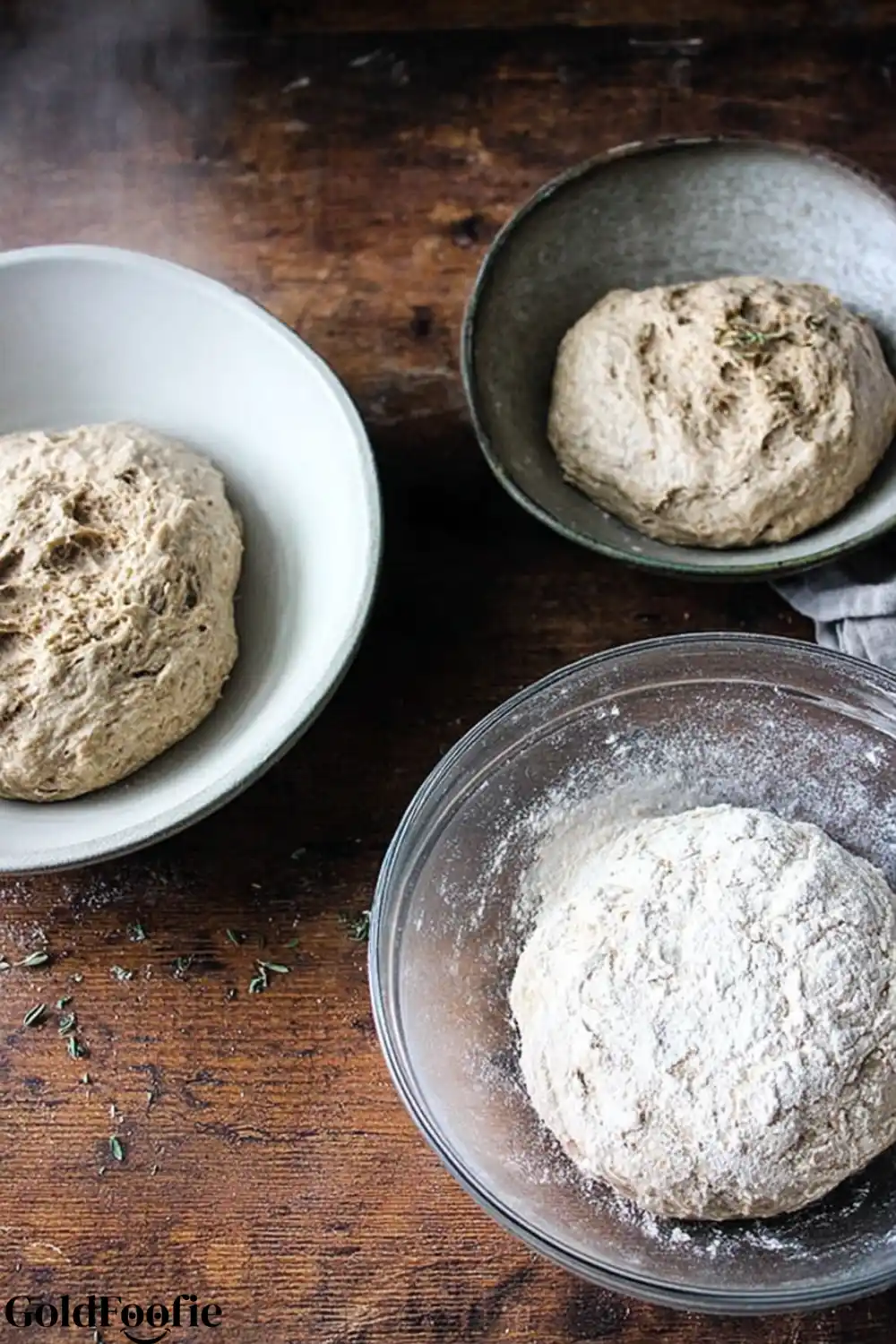
- Mix the dry ingredients
In a large mixing bowl, combine the all-purpose flour, sprouted wheat flour, kosher salt, sugar, and instant yeast. Stir well to distribute everything evenly. - Add the wet ingredients
Pour in the lukewarm water and olive oil. Use a rubber spatula to mix until a sticky dough forms. The dough should be soft and slightly loose. Make sure all flour is absorbed. - Let the dough rise
Cover the bowl with a clean towel or plastic wrap. Let it sit in a warm place for about one to one and a half hours. The dough should double in size. - Prepare the pans and surface
Grease two loaf pans with softened butter. Dust a clean surface with flour. If you’re using seeds for topping, spread them out on a plate. Keep a small bowl of water and a pastry brush nearby. - Deflate the dough
Using two forks, gently pull the dough away from the sides of the bowl toward the center. Rotate the bowl as you do this, forming a rough ball. - Shape the loaves
Lift the dough onto the floured surface. Dust your hands and the dough with more flour. Cut the dough into two equal parts using a bench scraper. Shape each piece into a ball, then flatten into a loose oval. - Add seeds if desired
Brush the top or all sides of each dough piece with water. Roll them in the seed mix and place each into the prepared loaf pans. - Second rise
Let the dough rise again until it reaches the top edges of the pans. This may take 30 minutes or longer, especially in colder weather. - Bake the bread
Place the pans in the center of a preheated oven at 375°F. Bake for 40 minutes, or until the tops are golden and the loaves sound hollow when tapped. - Cool before slicing
Remove the bread from the oven and carefully turn the loaves out onto a cooling rack. Let them cool for at least 20 minutes before slicing. This step helps set the crumb and prevents a gummy texture.
This method delivers soft, flavorful sprouted grain bread that fits perfectly into a diabetic-friendly diet.
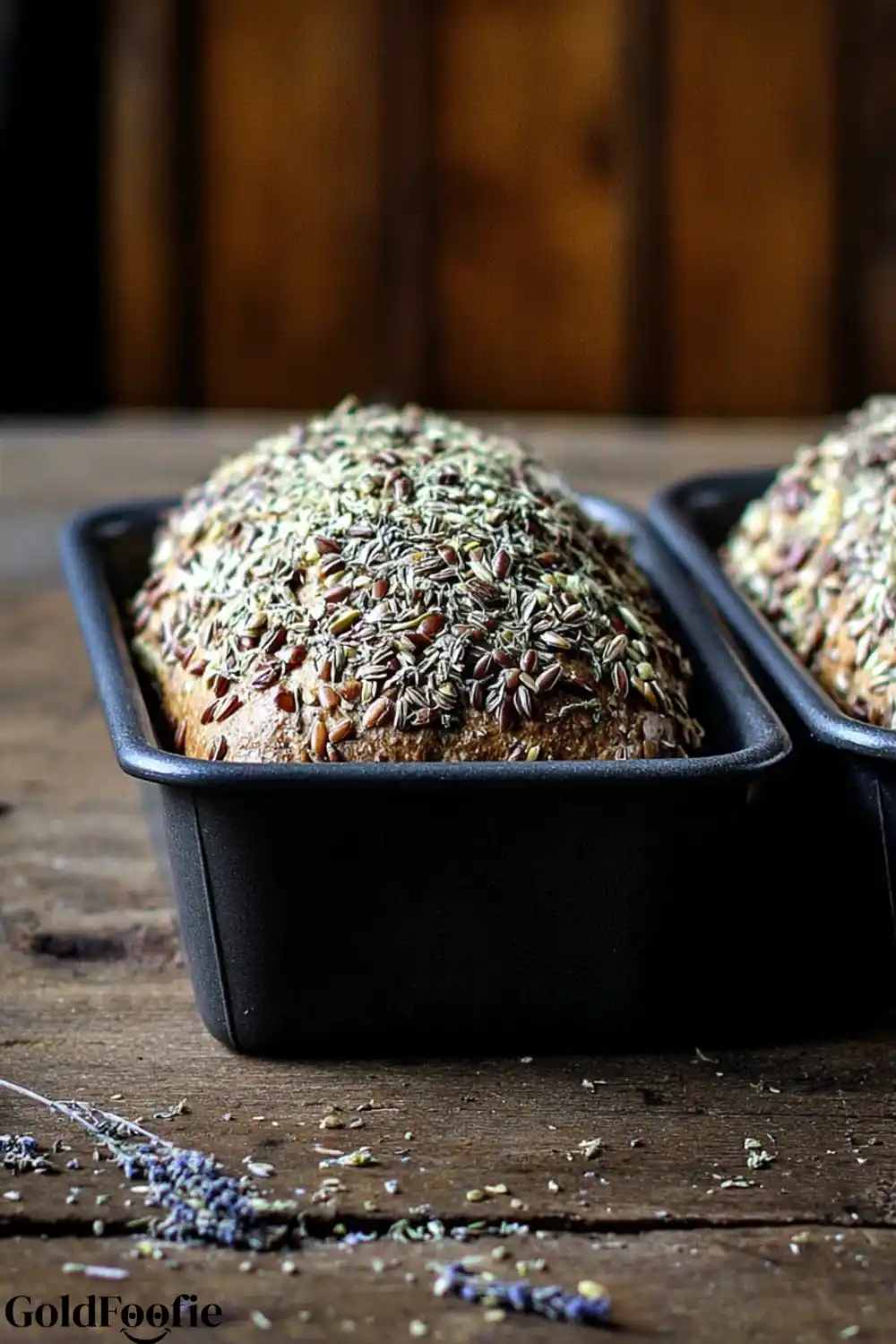
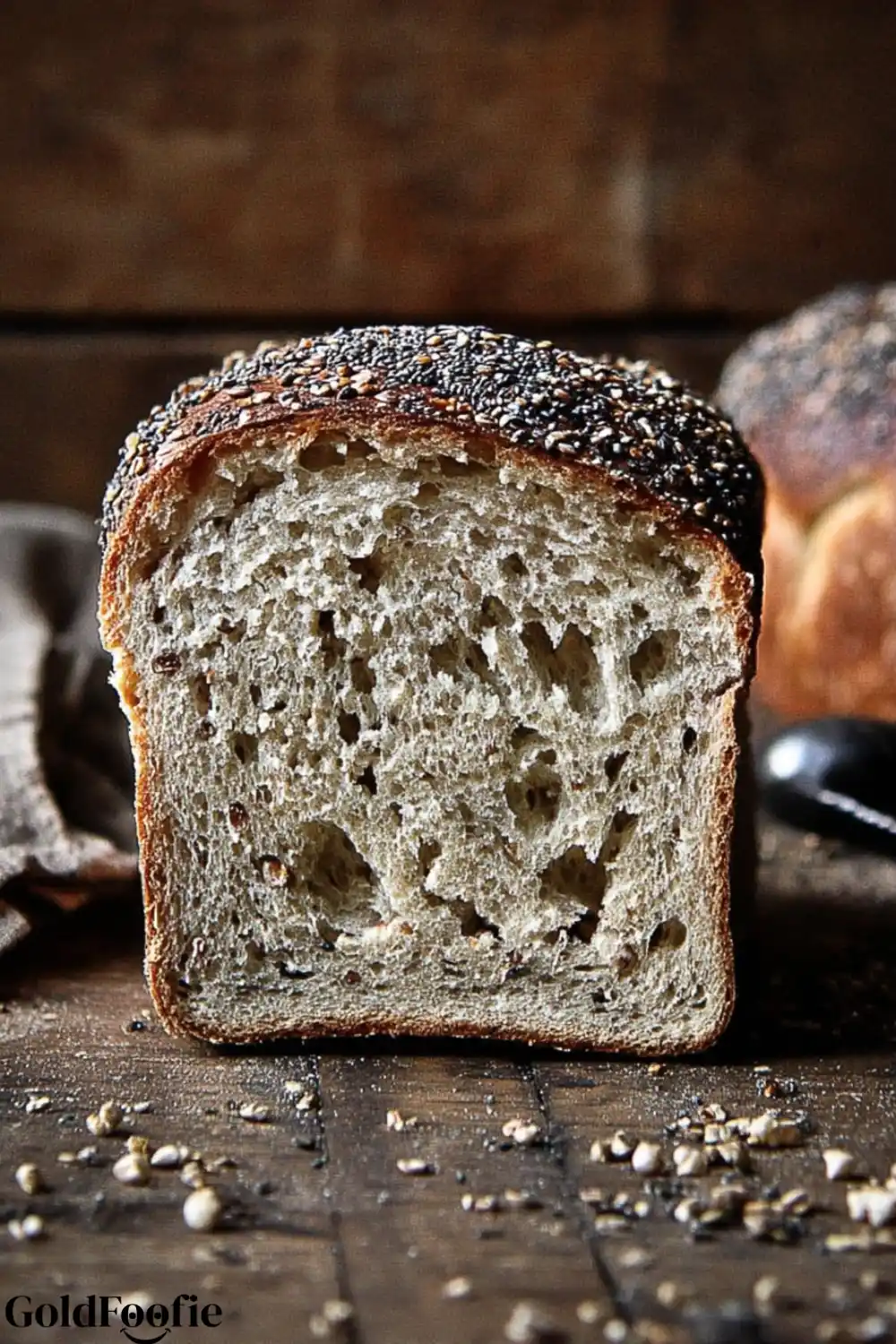
Sprouted Grain Bread
Ingredients
Method
- In a large mixing bowl, combine warm water, olive oil, and honey. Stir until mixed.
- Sprinkle in the yeast and let sit for 5 minutes until foamy.
- Add the sprouted whole wheat flour and salt. Stir with a wooden spoon until combined and a sticky dough forms.
- Cover the bowl with a towel and let rise in a warm place for 90 minutes, until doubled in size.
- Preheat oven to 375°F (190°C). Lightly grease two loaf pans.
- Divide the dough between the pans and smooth the tops. Let rest 10 minutes.
- Bake for 35-40 minutes or until golden brown and hollow-sounding when tapped.
- Cool in pans for 10 minutes, then transfer to a wire rack to cool completely before slicing.
Notes
Nutrition Facts (Per Serving)
Calories: 165 | Fat: 5g | Saturated Fat: 0.5g | Carbohydrates: 25g | Fiber: 4g | Sugars: 1g | Protein: 6g | Sodium: 290mgBaker’s Troubleshooting Guide: Why Did My Bread Fail?
Problem: My bread is too dense and gummy
This usually happens when the loaf is underbaked or sliced before fully cooling. It can also result from adding too much flour during shaping. Always check for a golden crust and let the sprouted grain bread cool completely on a rack before cutting.
Problem: My dough didn’t rise
Flat or compact bread often points to dead yeast. Double-check your yeast’s expiration date. Water temperature matters too. If it’s too hot, it can kill the yeast. Too cold, and the dough won’t activate. Also, cold room temperatures can slow the rise. Try placing the bowl in a slightly warm oven or near a warm window.
Problem: The crust is too hard
To soften the crust, brush the bread with melted butter as soon as it comes out of the oven. This adds flavor and helps trap moisture. Cover the loaf with a clean towel while cooling to keep it from drying out. This trick keeps your sprouted grain bread tender and easy to slice.
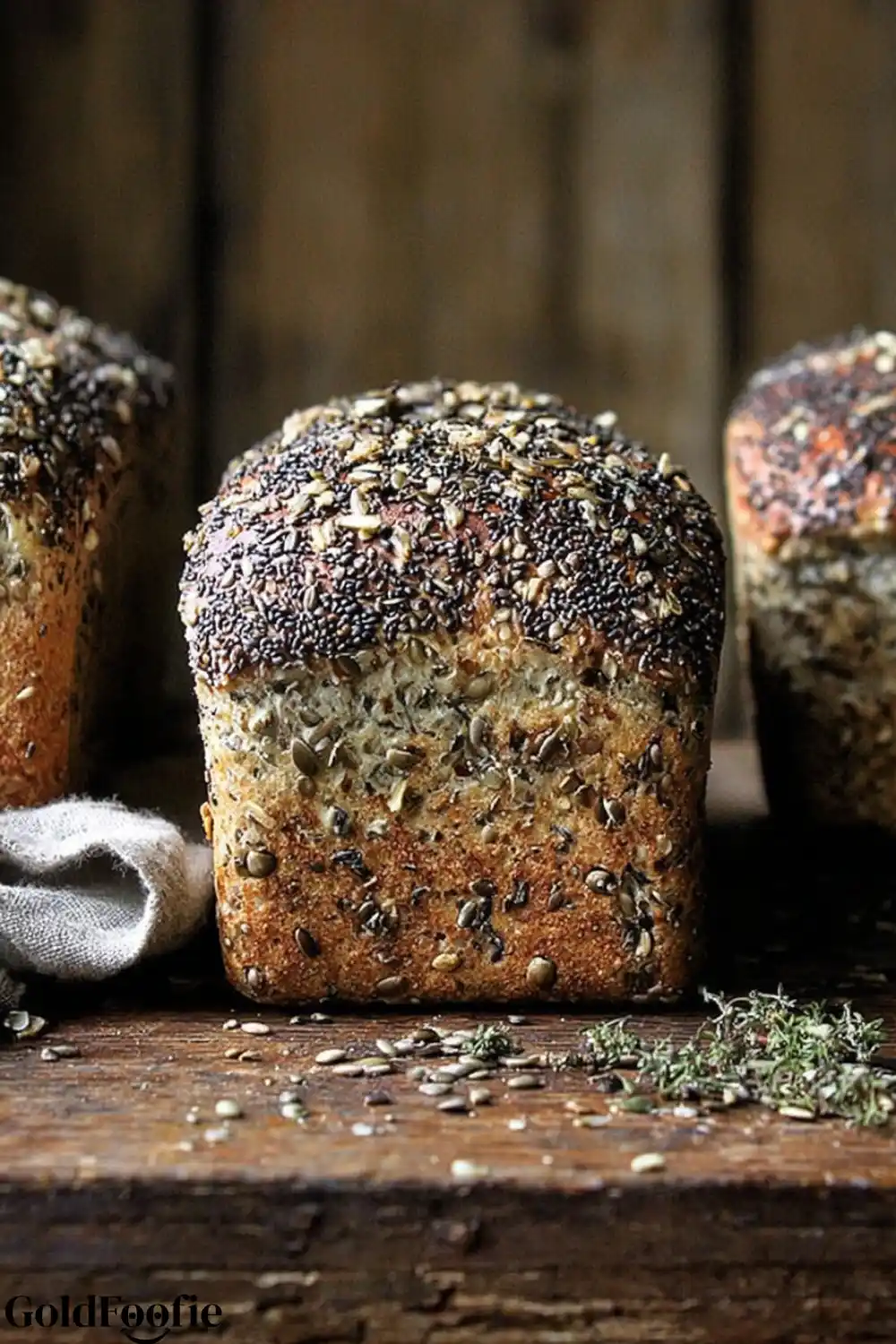
Recipe Variations: Make It Your Own
No-Knead Sprouted Bread
For an even simpler version, skip the shaping and kneading. After mixing the ingredients, let the dough rise directly in the greased loaf pans. Once it reaches the rim, bake as usual. This method saves time and still delivers soft, flavorful sprouted grain bread.
Sprouted Quick Bread (No Yeast)
To avoid yeast completely, swap it for one and a half teaspoons of baking soda and one teaspoon of baking powder. Replace the water with buttermilk or a mix of milk and vinegar to activate the leavening. The result is a moist, hearty loaf that requires no rising time.
Sweet Cinnamon Raisin Version
For a sweeter spin, add one teaspoon of cinnamon and three quarters of a cup of raisins during mixing. These extras add warmth and natural sweetness to your sprouted grain bread, making it perfect for breakfast or snacks.
Helpful Notes
- For best results, weigh your flour using a digital scale. This ensures consistent texture every time you bake sprouted grain bread.
- If your kitchen is cold, place the dough near a warm oven or inside with the light on to help it rise properly.
- When using seeds, toast them lightly before adding for extra flavor. Store leftover seeds in the freezer to keep them fresh for future use.
- To make oat bran at home, pulse rolled oats in a blender until finely ground. This is a budget-friendly option that adds nutrition and texture.
- Always let the bread cool fully before slicing. This helps avoid a gummy crumb and keeps the loaf from collapsing.
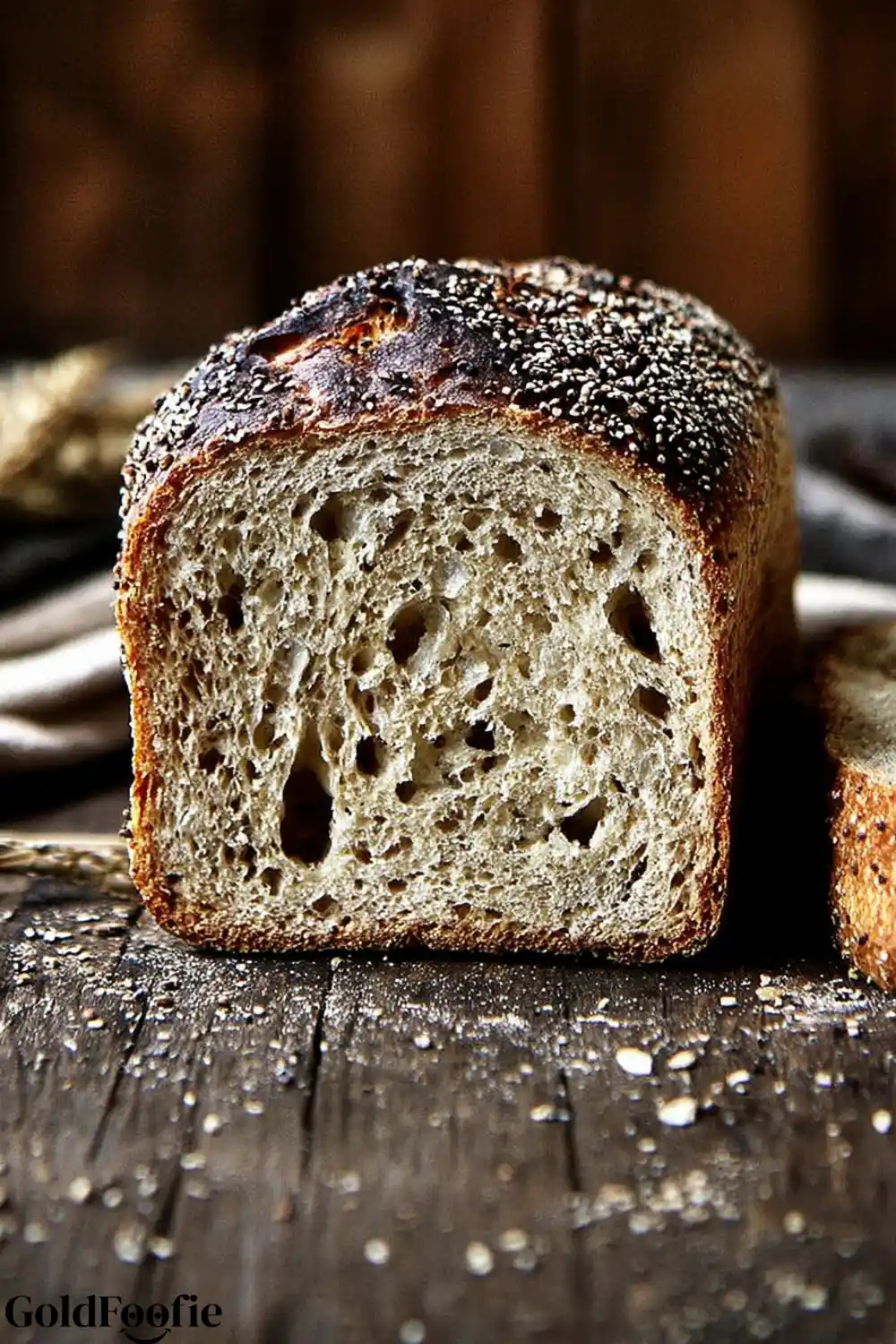
Frequently Asked Questions (FAQ)
Is sprouted grain bread really better for you?
Yes, sprouted grain bread offers better nutrient absorption and easier digestion compared to standard whole wheat bread. The sprouting process increases vitamins and breaks down compounds that block mineral absorption.
Which is better, sourdough or sprouted grain bread?
Both are nutritious choices. Sourdough is easier to digest due to fermentation, but sprouted grain bread has higher levels of certain nutrients and a naturally mild, sweet flavor.
What is sprouted grain in bread?
Sprouted grain refers to whole grains that have started to germinate. This process unlocks nutrients and reduces compounds that can make grains harder to digest.
Who should not eat Ezekiel bread?
People with gluten intolerance or celiac disease should avoid Ezekiel and other sprouted grain bread made with wheat, rye, or barley, as they still contain gluten. Always check the ingredient list before eating.
Your Journey into Healthy Baking
Baking sprouted grain bread at home brings more than just fresh, warm slices to your table. It delivers better nutrition, improved digestion, and real satisfaction from creating something wholesome and delicious.
You now have everything you need to make this bread part of your routine. From clear steps and expert tips to helpful answers and variations, this guide is your complete baking companion.
Did you try this recipe? Leave a rating and comment below. We would love to hear how your sprouted grain bread turned out and help others on their baking journey too.
Diabetes Nutrition Specialist | Healthy Diet Advocate | Founder of GoldFoodie.
My passion for nutrition began with a deeply personal journey supporting my father through his battle with diabetes. Watching his daily struggles made me realize how powerful the right food choices can be in improving quality of life. That experience drove me to dedicate my career to helping others live healthier, more balanced lives.






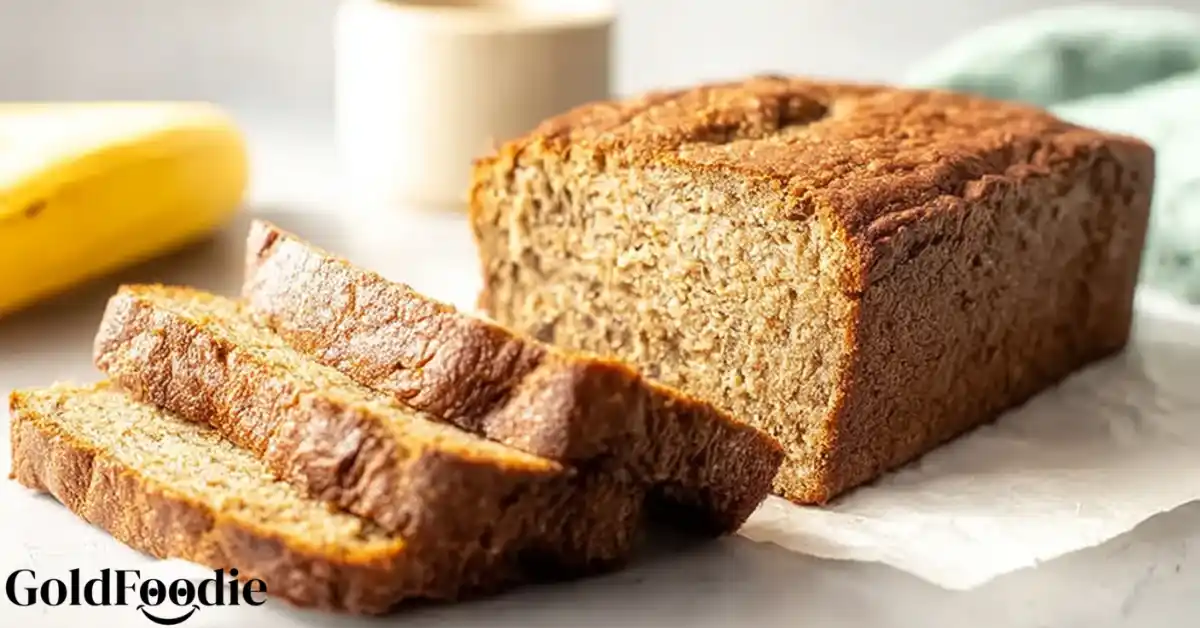
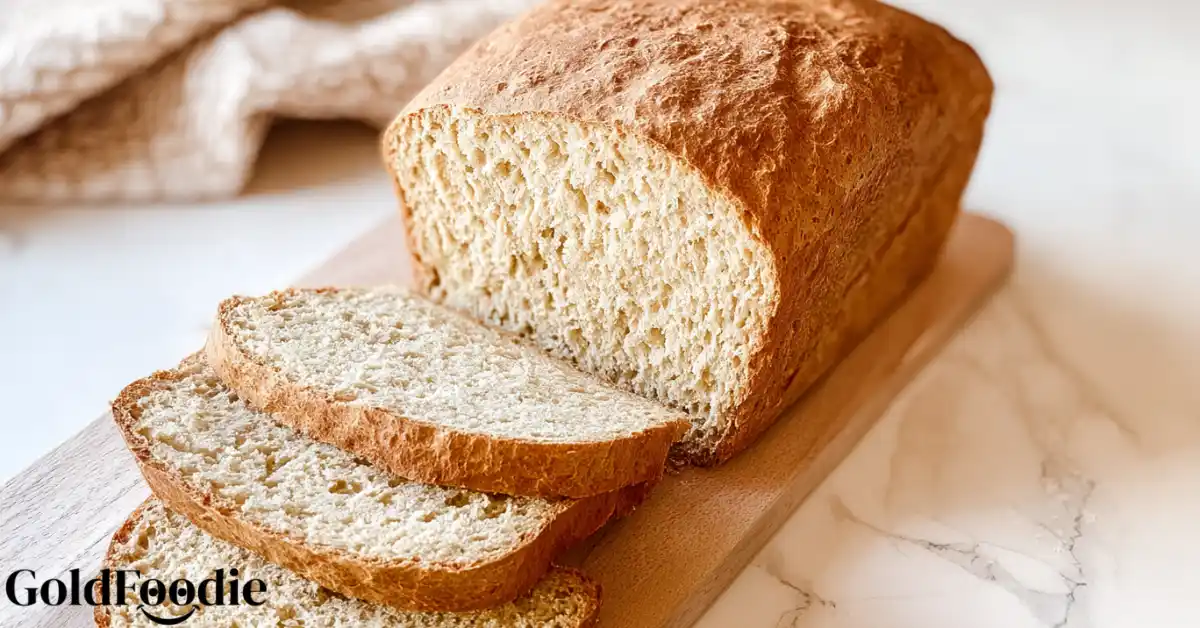
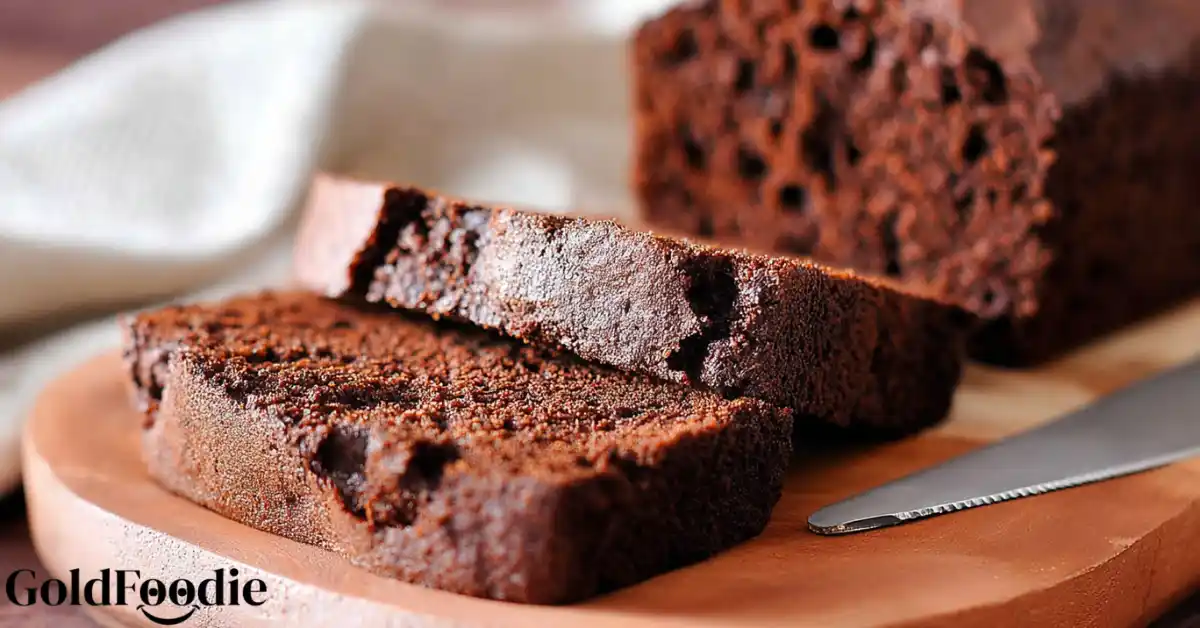
1 thought on “Sprouted Grain Bread Soft Nutty Delicious Homemade”